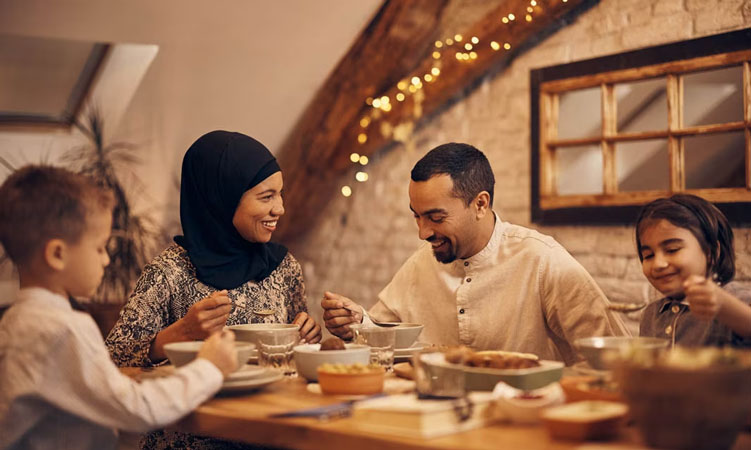For Ramadan in America – US Embassy & Consulates in Italy

Because many American Muslims trace their ancestors to other corners of the world, Ramadan traditions in the United States are diverse. Immigrants often remember their first Ramadan in the United States as learning new customs.
Rizwan Jaka, a Chicago-born and Washington-area member of the All Dulles Area Muslim Society (ADAMS), notes that many of his community members are immigrants or have an international heritage like his — he has roots in India, Pakistan and Mexico. Consequently, the company serves daily Iftar with changing menus of South Asian, Middle Eastern, African, American and other cuisines.
Like all Muslims, on March 22 Jaka begins a month of fasting, praying, reciting the Qur’an, donating to charity, doing good deeds and gathering for the iftar meal. In the US, Jaka says, Ramadan is a time of community and spiritual growth.
For her part, Samira Jaweed, who immigrated from Pakistan at the age of 29, recalls her first Ramadan in the United States as “very different from Pakistan”. There, her family mostly kept Ramadan at home, she says. At the Greater Cincinnati Islamic Center, she has acclimated to Ramadan activities centered around the mosque. “It’s uniquely American,” she says.
Jaweed admits she’s had a challenge in the United States: daylight saving time. Because Americans put the clocks forward each spring so that darkness falls at a later time, “the fasting of Ramadan can last anywhere from eight to 18 hours, depending on the year and where you live,” she says. Her first few Ramadans in the US were in the winter when sunset would be around 5:00 p.m. But in the summer, the clock change pushes the time for fasting past 9:00 p.m., making it more difficult.
Tariq Rasheed, who came to the US from India as a young adult, loves how Americans organize Ramadan activities for the whole family. Rasheed, who is now an imam at the Islamic Center in Orlando, Florida, remembers his first Ramadan in the US as “very special”.
The local Muslim community meets every evening, he says. His family “prayed together, broke fasts together, socialized, and made new friends every night of the blessed month.” On the weekends, after prayers, the mosque held sporting events in which both men and women participated. “It was all new to me,” he says, noting that in India only men came into mosques that “were a place to pray, and that’s it.”
He loves that mosques in the United States are often the focus of social, religious, and even sporting activities.
Today, Rasheed organizes interfaith iftars at his mosque, with local churches and synagogues participating. “For me, these iftars are the highlight of Ramadan,” he says, “because they create strong friendships between different communities.”

